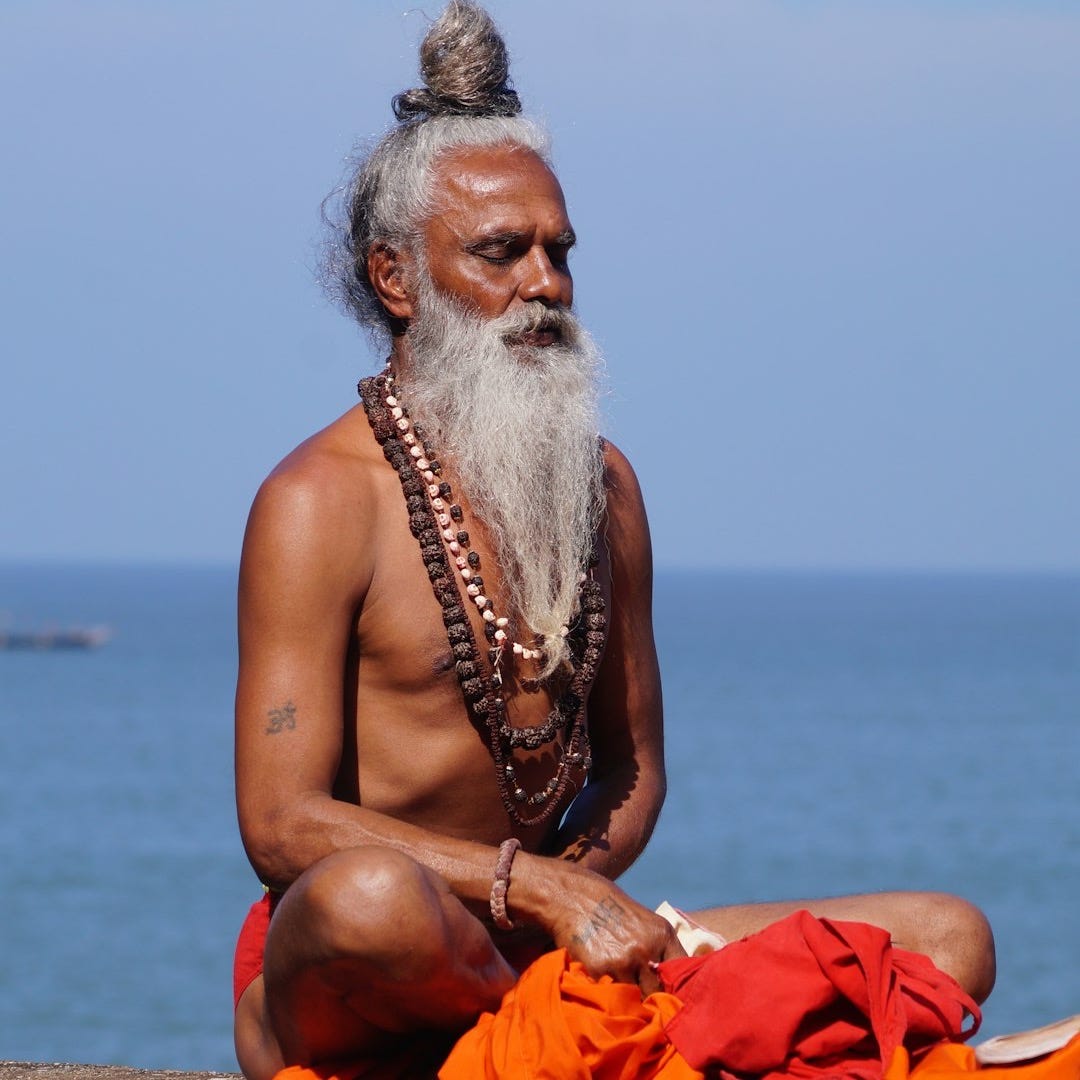So, You’ve Heard of Ayurveda… Now What?
5 Things I Wish I’d Known Before I Thought It Meant Giving Up Coffee and Eating Mung Beans Forever
Namaste,
The first time I heard the word Ayurveda, I nodded politely and hoped no one would ask me what it meant. After all, I was born in the land where Ayurveda was born. Shouldn’t I already know?
It sounded poetic. Ancient. And honestly? A bit impractical. Too rigid. Too foreign—even to me. And it gave me the impression that if I didn’t follow all the rules, then it wasn’t worth doing at all.
Also, I thought it meant giving up coffee, eating only khichadi, (a soft, porridge-like dish made with rice and lentils), and chanting while doing yoga.
I was wrong on all counts.

Ayurveda IS ancient—but it’s incredibly relevant to modern life. Ayurveda can help us feel steadier, clearer, and more connected to our bodies, our minds, and the choices we make. But at first, it can feel like a lot to take in.
If you’ve ever been Ayurveda-curious but felt a little lost, a little skeptical, or a little intimidated—this post is for you. I wish someone had handed me a short, friendly guide when I first heard about this ancient science. Instead, I learned the long way.
Let’s Start With These Five:
1. It’s not a detox plan. It’s a way of seeing yourself.
Ayurveda isn’t a cleanse or a trendy diet. It’s a science of life—one that starts with observation, not restriction.
It helps you notice what throws you off, and gently shows you the way back to balance. There’s no list of “bad” foods taped to your fridge. No guru wagging a finger. It’s more like an inner compass—quiet, steady, and deeply personal.
And once you start to tune in, you realize you’ve had the answers all along. Ayurveda just helps you hear them.
2. You don’t need to change your whole life overnight.
You don’t have to move to an ashram or throw out everything in your kitchen. Even one small change—like eating warm meals regularly or getting to bed a bit earlier—can shift how you feel more than you’d expect.
Ayurveda is more about rhythm than revolution.
It reminded me of those subjects in school that only made sense once you had a great teacher—the kind who explained the why, not just the how. That’s when things finally stuck. That’s when you could actually use what you learned, not just cram for a test.
All my life, I’d heard what I thought was vague advice: sleep early, wake up early, eat at the same time every day, move your body. It always felt like background noise. But Ayurveda gave me the why. Suddenly, those routines weren’t someone else’s rules—they were tools I could choose to use.
Not because I had to. But because they made me feel like the best version of myself.
3. Your Constitution Is a Starting Point, Not the Whole Story
Maybe you’ve taken one of those online dosha quizzes—the kind that tells you you’re predominantly Vata, Pitta, or Kapha… or some combination of the three.
What those quizzes are pointing to is your Prakriti—your unique constitution. It’s the blend of energies you were born with, the core of who you are.
But Ayurveda isn’t just about who you were at birth. It’s about who you are right now. That’s where Vikriti comes in—your current state, your current imbalance. And that’s what we work with first.
Your Prakriti is like a blueprint. But life happens. Seasons shift. Emotions rise and fall. The goal isn’t to stay fixed to a type—it’s to stay aware. Because Ayurveda meets you where you are, not where you were born.
4. Food is important—but it’s not the whole story.
What you eat does matter—but Ayurveda looks beyond the plate. It asks what you’re taking in through your other senses too. What are you watching? Listening to? Scrolling past at midnight? All of it is ahara—input.
Your environment, your conversations, your playlists—these things feed you too.
Ayurveda helped me see that digestion doesn’t stop at food. It’s also about processing emotions, information, and even the energy of the people around you. That’s when it clicked: I wasn’t just bloated because of dinner. I was overwhelmed by everything I was trying to take in.
5. There’s room for you in this—just as you are.
You don’t have to be Indian. Or vegetarian. Or into yoga. You don’t have to chant, cook lentils, or read ancient Sanskrit texts.
Ayurveda welcomes you exactly as you are—with curiosity, not judgment.
For the longest time, I thought it was only for people living a different kind of life. But it’s for anyone who wants to feel better in their body, in their mind, in their day. Ayurveda doesn’t ask you to become someone else. It asks you to remember who you already are.
Further Reading:
Until next time — may your meals be warm, your schedule gentle, and your nervous system at ease.
Namaste,
P.S. If this post helped you, consider sharing it with someone who’s curious about Ayurveda—or hit the 💛 so I know it resonated.









I can’t wait until you write your book. A practitioner of yoga for more than 20 years, I dabbled a bit with Ayurveda, but after reading several of your posts, I’ve really started diving in. Suffice it to say, this vata-pitta gal is honoring her need to move, and mix things up. My mood has lifted. Thank you, Geetika!
I read your request for feedback on Write Build Whatever... I like the friendly tone of this piece and how you steadily demystify Ayurveda for folks ~ it's working!